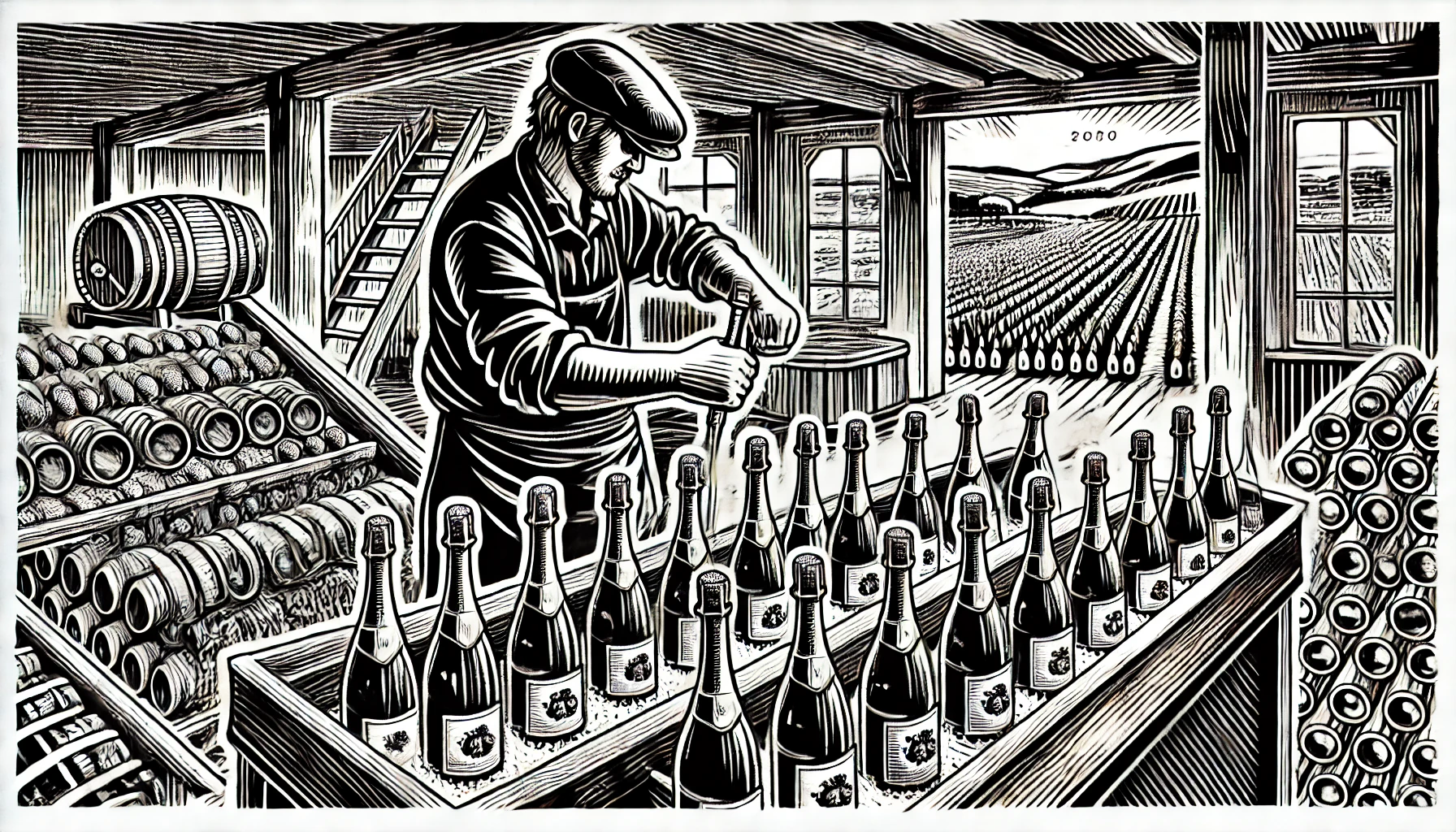
Riddling, known as remuage in French, is an essential process in the traditional method of sparkling wine production. Basically, it serves to collect the sediment from the secondary fermentation. During secondary fermentation, dead yeast cells, or lees, accumulate in the bottle, and riddling helps move this sediment toward the neck of the bottle in preparation for its removal.
The process of riddling involves placing the bottles at an angle in wooden or metal racks, known as pupitres. The bottles are then rotated slightly every day and tilted incrementally to move the sediment down into the neck. Traditionally, skilled workers known as remueurs performed this task by hand, turning each bottle over the course of several weeks. Today, many wineries use machines called gyropalettes to automate this process, allowing for greater efficiency without sacrificing quality.
Patience and Precision
Riddling requires patience and precision because the goal is to gather all the sediment into a small, compact deposit near the neck of the bottle without disturbing the wine inside. If the sediment isn’t properly settled, the clarity of the wine can be compromised. That would affect the wine’s appearance and, potentially, its flavor.
The length of the riddling process can vary depending on the type of sparkling wine and the winemaker’s techniques. It typically lasts anywhere from several days to several weeks. For premium Champagne, where clarity and purity are paramount, winemakers take special care to ensure the riddling process is done perfectly.
After riddling, the bottle undergoes disgorgement, where the sediment is expelled from the bottle. Riddling ensures that this step goes smoothly by gathering all the lees into one place. It is setting the stage for the next phase of sparkling wine production. Riddling plays a vital role in maintaining the visual appeal and clarity of fine sparkling wines, ensuring they look as stunning as they taste.
Curious about more wine terms and insights? Visit our Wine Wiki section and explore the basic wine terms for expert definitions and tips!